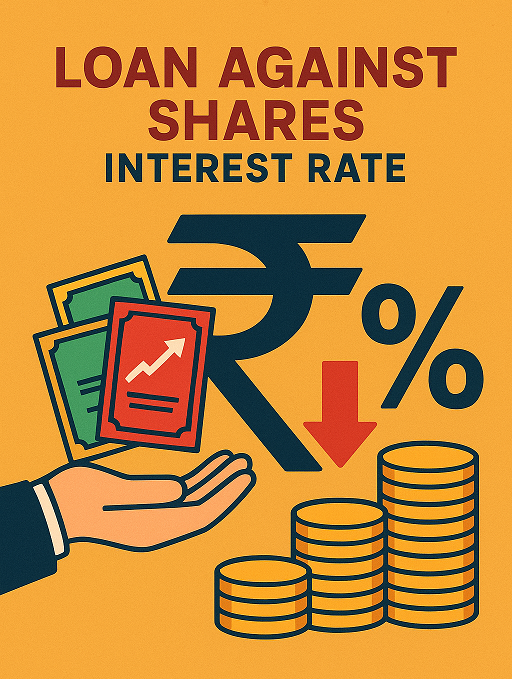Loan Against Shares Interest Rates in 2025: What You Must Know

A Loan Against Shares (LAS) has become an increasingly popular borrowing option in 2025, especially for investors who need quick liquidity without selling their stocks. But before leveraging your portfolio, understanding the loan against shares interest rate is essential. In this article, we break down the latest trends, typical rates, and factors that influence the interest rate on loan against shares.
What is a Loan Against Shares?
A Loan Against Shares is a type of secured loan where you pledge your listed shares or equity as collateral. Banks and NBFCs provide you with a loan based on the value of the shares, typically up to 50-70% of their current market price.
This option is best suited for short-term cash needs like business expenses, emergency funds, or education costs, while still retaining ownership of your shares.
Loan Against Shares Interest Rate in 2025
In 2025, the loan against shares interest rate varies depending on the lender, the type of shares pledged (blue-chip or volatile), and your credit profile. Here’s an overview:
-
Public Sector Banks: 9% – 11% p.a.
-
Private Banks: 10% – 12.5% p.a.
-
NBFCs and Fintech Lenders: 11% – 14% p.a.
These rates are significantly lower than unsecured personal loans, which average around 14% – 18% in 2025. Hence, if you hold quality stocks, taking a loan on shares is a smarter financial move.
Factors Influencing Interest Rate on Loan Against Shares
Lenders determine the interest rate on loan against shares based on several key factors:
-
Type and Quality of Shares: Blue-chip stocks usually attract lower interest rates.
-
Loan Amount and Tenure: Higher loan amounts or longer tenures might impact the rate.
-
Borrower's Credit Score: A strong CIBIL score can help secure better rates.
-
Lender Type: Banks often offer lower rates than NBFCs, but with stricter documentation.
Why Choose Loan on Shares in 2025?
-
Quick Processing: Disbursal within 24–48 hours
-
Lower Interest Rates: Compared to personal loans or credit cards
-
No Need to Sell Shares: You stay invested and benefit from market growth
-
Flexible Repayment: Pay interest monthly and repay principal anytime
Final Thoughts
With stock markets expected to remain stable in 2025, borrowing against shares can be a strategic choice if done wisely. Always compare the loan against shares interest rate across lenders and understand the terms carefully. This option not only keeps your portfolio intact but also offers competitive rates that can ease your financial burdens.
- Questions and Answers
- Opinion
- Motivational and Inspiring Story
- Technology
- True & Inspiring Quotes
- Live and Let live
- Focus
- Geopolitics
- Military-Arms/Equipment
- Güvenlik
- Economy/Economic
- Art
- Causes
- Crafts
- Dance
- Drinks
- Film/Movie
- Fitness
- Food
- Oyunlar
- Gardening
- Health
- Home
- Literature
- Music
- Networking
- Other
- Party
- Religion
- Shopping
- Sports
- Theater
- Health and Wellness
- News
- Culture

